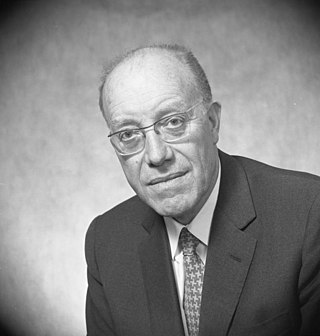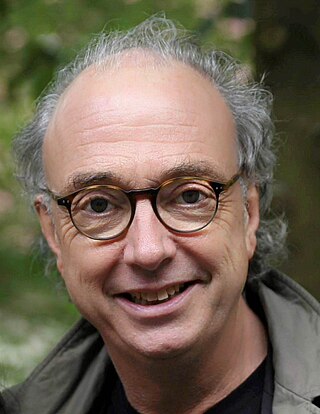Related Research Articles

Technische Universität Berlin is a public research university located in Berlin, Germany. It was the first German university to adopt the name "Technische Universität".

The Technische Universität Darmstadt, commonly known as TU Darmstadt, is a research university in the city of Darmstadt, Germany. It was founded in 1877 and received the right to award doctorates in 1899. In 1882, it was the first university in the world to set up a chair in electrical engineering. In 1883, the university founded the first faculty of electrical engineering and introduced the world's first degree course in electrical engineering. In 2004, it became the first German university to be declared as an autonomous university. TU Darmstadt has assumed a pioneering role in Germany. Computer science, electrical engineering, artificial intelligence, mechatronics, business informatics, political science and many more courses were introduced as scientific disciplines in Germany by Darmstadt faculty.

The Gottfried Wilhelm Leibniz Prize, or Leibniz Prize, is awarded by the German Research Foundation to "exceptional scientists and academics for their outstanding achievements in the field of research". Since 1986, up to ten prizes have been awarded annually to individuals or research groups working at a research institution in Germany or at a German research institution abroad. It is considered the most important research award in Germany.

Heinz Maier-Leibnitz was a German physicist. He made contributions to nuclear spectroscopy, coincidence measurement techniques, radioactive tracers for biochemistry and medicine, and neutron optics. He was an influential educator and an advisor to the Federal Republic of Germany on nuclear programs.
Therese Charlotte Biedl is an Austrian computer scientist known for her research in computational geometry and graph drawing. Currently she is a professor at the University of Waterloo in Canada.

Hannah Markwig is a German mathematician specializing in tropical geometry. In 2010 she won both the Heinz Maier-Leibnitz Prize of the Deutsche Forschungsgemeinschaft and the Helene Lange Prize for her research.

Friedrich Eisenbrand is a German mathematician and computer scientist. He is a professor at EPFL Lausanne working in discrete mathematics, linear programming, combinatorial optimization and algorithmic geometry of numbers.
Martin Grohe is a German mathematician and computer scientist known for his research on parameterized complexity, mathematical logic, finite model theory, the logic of graphs, database theory, descriptive complexity theory, and graph neural networks. He is a University Professor of Computer Science at RWTH Aachen University, where he holds the Chair for Logic and Theory of Discrete Systems.

Alwin Oswald Walther was a German mathematician, engineer and professor. He is one of the pioneers of mechanical computing technology in Germany.

Peter Bürgisser is a Swiss mathematician and theoretical computer scientist who deals with algorithmic algebra and algebraic complexity theory.

Johannes Alfred Buchmann is a German computer scientist, mathematician and professor emeritus at the department of computer science of the Technische Universität Darmstadt.
Stefan Roth is a German computer scientist, professor of computer science and dean of the department of computer science of the Technische Universität Darmstadt. He heads the Visual Inference Lab.
Eva-Maria Elisabeth Feichtner is a German mathematician, the founder and director of the Institute for Algebra, Geometry, Topology and their Applications at the University of Bremen, where she is professor of algebra and vice president of internationalization and diversity. Topics in her research have included tropical geometry, matroid polytopes, Chow rings, toric varieties, lattices and semilattices, and the wonderful compactification.
Gabriele Steidl is a German mathematician whose research interests include computational harmonic analysis, convex optimization, and image processing. She is a professor of mathematics at Technische Universität Berlin.

Eric Bodden is a German computer scientist. He holds the Chair of Secure Software Engineering at the Heinz Nixdorf Institute of the Paderborn University and is Director of Software Engineering and IT Security at the Fraunhofer Institute for Mechatronic Design (IEM). He is also head of the engineering department in the Collaborative Research Centre 1119 CROSSING at the Technical University of Darmstadt.
Rolf Niedermeier was a professor of computer science, known for his research in computational complexity theory, especially in parameterized complexity, graph theory, computational social choice, and social network analysis.
Ulrike I. Kramm is a German chemistry professor at Technische Universität Darmstadt. Her research considers the development and characterisation of metal catalysts for fuel cells, CO2 conversion and solar fuels.
Annike Marie Hinze is a New Zealand computer scientist, and is a full professor at the University of Waikato, specialising in algorithms to detect complex patterns in data. As of 2023, she is the head of the School of Mathematical and Computer Sciences.
Corinna Bath is a German computer scientist and university lecturer. After holding the Maria Goeppert-Mayer Professorship for Gender, Technology and Mobility from 2012 to 2022, she has since been Head of the Coordination and Research Centre of the Women's Studies and Gender Studies Network at the University of Duisburg-Essen.

Vera Traub is a German applied mathematician and theoretical computer scientist known for her research on approximation algorithms for combinatorial optimization problems including the travelling salesperson problem and the Steiner tree problem. She is a junior professor in the Institute for Discrete Mathematics at the University of Bonn.
References
- 1 2 Curriculum vitae , retrieved 2020-04-25
- ↑ Nicole Megow at the Mathematics Genealogy Project
- ↑ DFG Announces Recipients of 2013 Heinz Maier-Leibnitz Prize, Deutsche Forschungsgemeinschaft, 7 May 2013, retrieved 2020-04-25